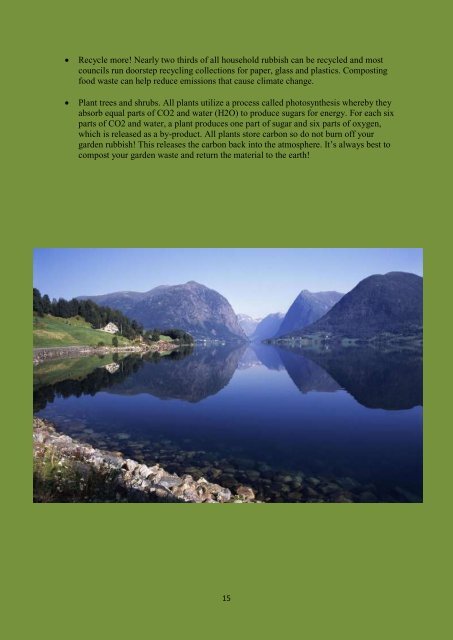The Brochure - GLOBAL WARMING and local effects
The Brochure - GLOBAL WARMING and local effects
The Brochure - GLOBAL WARMING and local effects
Create successful ePaper yourself
Turn your PDF publications into a flip-book with our unique Google optimized e-Paper software.
� Recycle more! Nearly two thirds of all household rubbish can be recycled <strong>and</strong> most<br />
councils run doorstep recycling collections for paper, glass <strong>and</strong> plastics. Composting<br />
food waste can help reduce emissions that cause climate change.<br />
� Plant trees <strong>and</strong> shrubs. All plants utilize a process called photosynthesis whereby they<br />
absorb equal parts of CO2 <strong>and</strong> water (H2O) to produce sugars for energy. For each six<br />
parts of CO2 <strong>and</strong> water, a plant produces one part of sugar <strong>and</strong> six parts of oxygen,<br />
which is released as a by-product. All plants store carbon so do not burn off your<br />
garden rubbish! This releases the carbon back into the atmosphere. It’s always best to<br />
compost your garden waste <strong>and</strong> return the material to the earth!<br />
15


